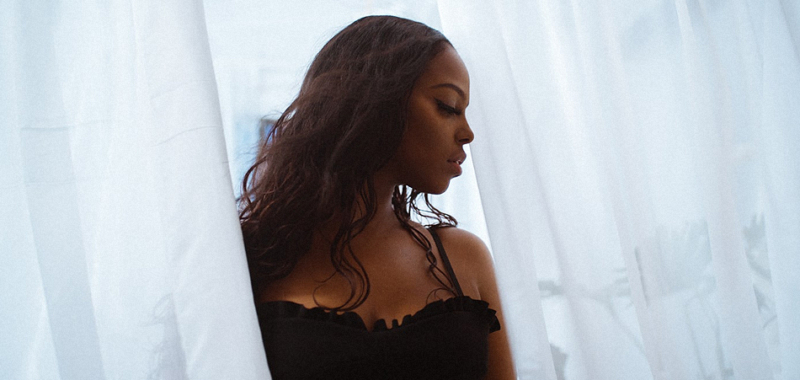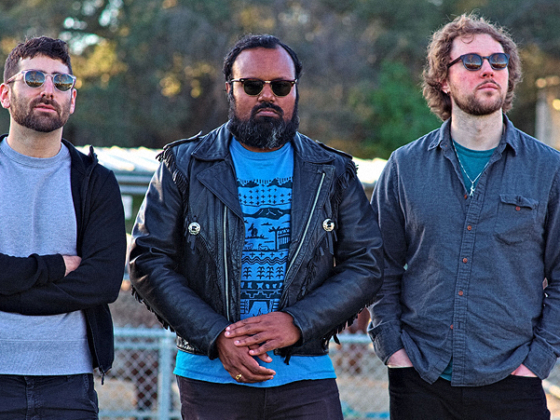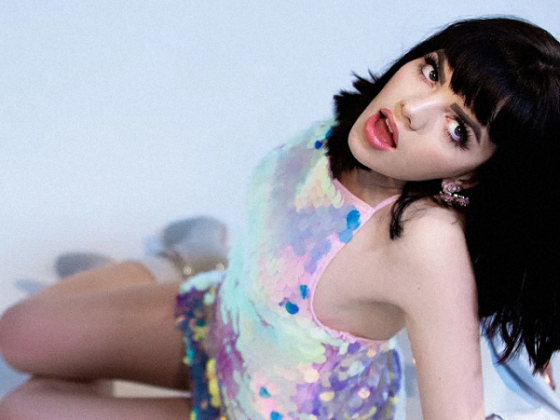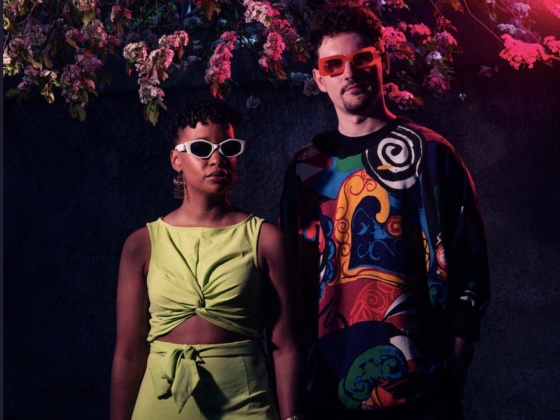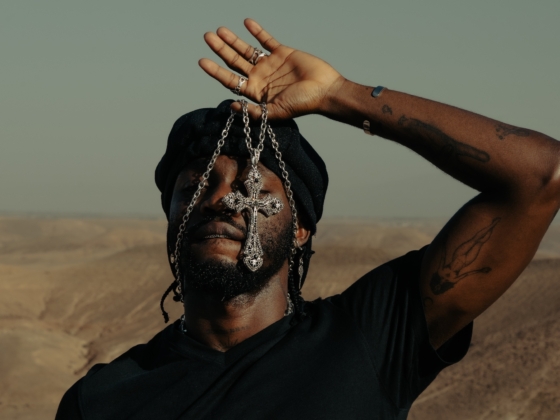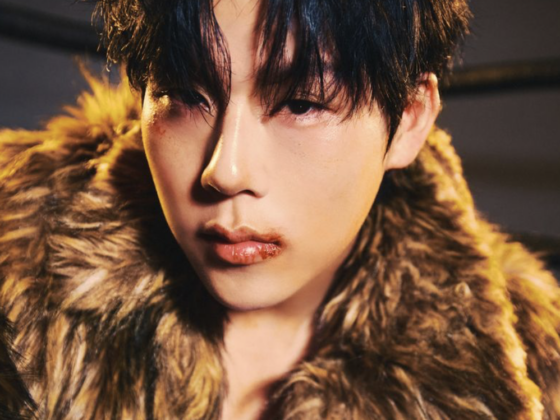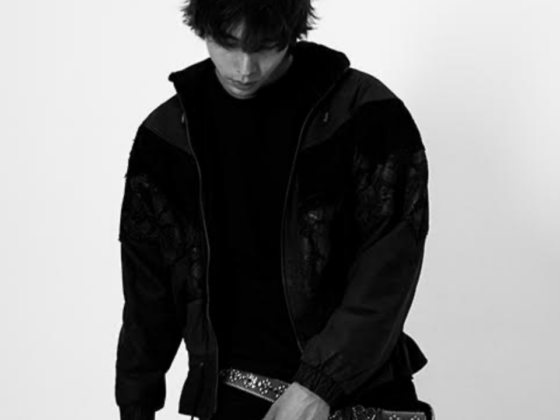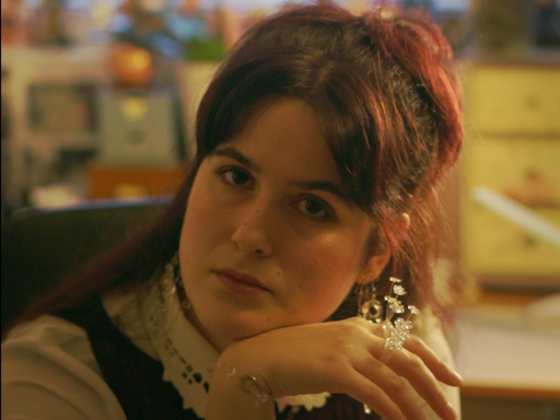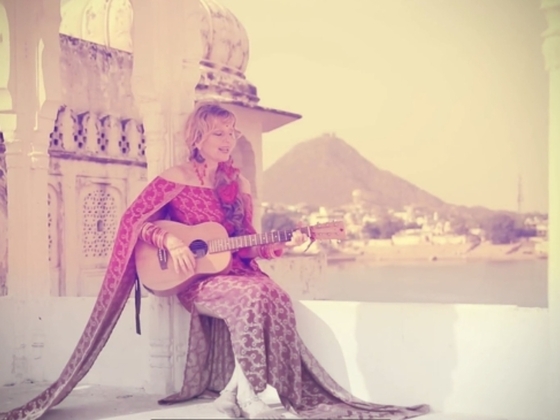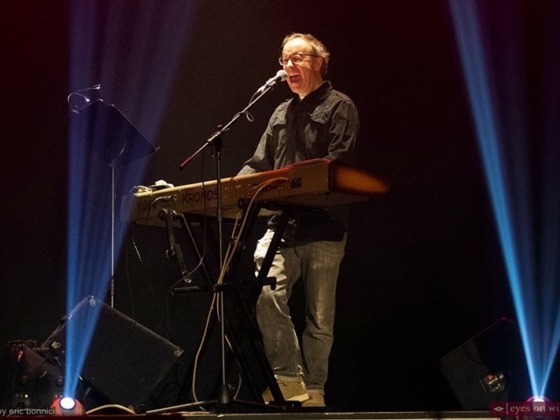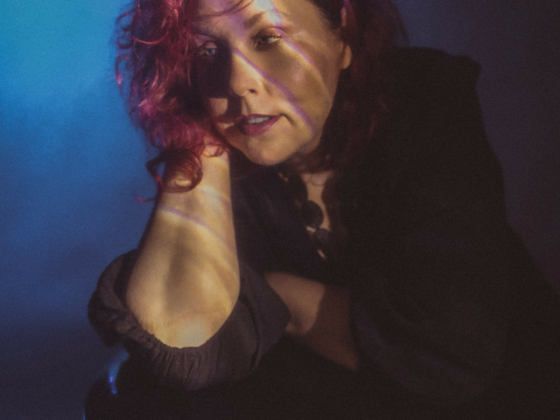Amaal's origin story will be familiar to many. Her parents, a teacher and a pilot from Mogadishu, Somalia, fled their country in amidst the outbreak of the civil war in the early nineties. After spending some time in Alabama, they landed and settled in Toronto. "[Alabama] didn't last very long, it was not a place my parents felt very comfortable," Amaal tells me over the phone. "And Canada had this amazing reputation…to be just a safe haven and open door for people of different ethnicities." Thankfully, Toronto has lived up to that reputation, and in doing so has allowed us to nurture a truly promising female R&B artist.
Amaal has just finished wrapping up her EP. "It's been a long time coming," she gushes. "I feel like it's about myself. With a lot of my music, the narrative centres around 'people.' Being a refugee, being an immigrant, being raised in an area that was reflective of that [experience]…I feel like this is just a little more honest [about] my heartbreaks and things I've been through." Among her few singles is the effortlessly catchy "Not What I Thought," a song about female vulnerability. "For the longest time I thought being strong meant 'I'm okay, I'm over this, I'm moving on,'" she says. "I wasn't doing the work in between. I found that there's real strength in breaking down and rebuilding yourself." She created an idea for a video shot in Iceland with Sean Brown, best known for his work with Daniel Caesar. "Through the entire process," Amaal explains, "I kept drawing comparisons to Mother Nature. She's majestic and has been the most exploited by man, but is still resilient and fruitful and there's beauty in all her flaws and perfections. I kept seeing those similarities to women. I wanted to have a moment where I was reclaiming my power in an experience where someone had tried to take it from me. We went there and I think it was like three days that we spent shooting. The weather was not what we wanted to be. And I said 'that's okay! We're going to let Mother Nature direct this." It rained the whole time and I was like "alright, my hair's going to be curly now." It really turned into a piece I'm very proud of."
Amaal's journey to the career she has carved out for herself in the past year was not necessarily planned. "Because I was raised in a Muslim household, music wasn't something that was encouraged or listened to…so I had to discover it on my own. [I found] Alicia Keys, Aaliyah—it was through them I discovered my deep connection to music. I always had that connection even if I didn't have the opportunity or the outlet to nurture what it was that I was feeling. I was like fourteen or fifteen, buying an iPod, and downloading music…It was like discovering something that was not talked about. I spent hours downloading music from the sixties. Sam Cooke was actually one of my favourites during that time! I didn't know who he was and I was like 'whoa!'"
This explosive, revelatory discovery led to an obsession with music and a draw to poetry, which she began to write as a teenager. Amaal is delightfully honest about her discoveries. "This is going to sound crazy. Actually, you know what? It won't sound crazy at all," she amends defiantly as she cites Coolio's "Gangsta Paradise" as the first song that made her stop and pay attention. "My brother was blasting [it] out of his bedroom because my parents weren't home. I just remember stopping and listening, because I knew once I entered the house my brother would stop playing it."
Still, her parents were surprisingly supportive of her. "It is such a taboo in my culture," she admits. "This surprises a lot of people, but my dad was extremely supportive. He was the one that told me—because I went to University, I took international development, he told me 'you should really do something with this, you should do music.' Him saying that made me really comfortable to pursue it." Her mother took a little longer to persuade. "She was more concerned about image, worried about what people would think of me. She was worried about her daughter and what the community would say…she wanted me to be happy but there was a bit of a mob—maybe that isn't the word I want to use, but there were a lot of people who were coming and telling her 'this is not something that she should be doing, she should be careful.'" Amaal's deep love for her parents is obvious, as she wrestles between providing an honest answer and making sure I'm aware that her mother loves her, and simply wants what is best for her children.
It wasn't until I released 'Mufasa' that she was really completely on board. She would kindly put friends and neighbours in their place and say 'that's my daughter and I respect what she does and I'm for it.' 'Mufasa' was a song where I really used my activism in my lyrics. It was to say 'if Somalia had words, what would she say to us?' A lot of people in the African diaspora relate to that song, and she saw that. She put her hands up and said 'I support you 1oo%'…They have an expectation of 'we left it all for you to do this.' Their idea of 'the dream' is the lawyer and the doctor, and if your dream doesn't align with that they sometimes have a problem with it.
She interrupts herself to say "sorry, I'm happy that you understand this, because some people don't, sometimes." In any case, I can't see it being difficult to be proud of someone whose lyrics toggle effortlessly between activism and near-painful relatability. Amaal speaks from her massive heart, whether in her music or on social media, which she acknowledges to be important despite its faults. "There's beauty to it, and I love the image of black women that I'm beginning to see essentially because of social media. There's the #blackgirlmagic hashtag…I'm in love with it but I also hate it at the same time. I'm trying my best to find a balance [and] reduce the amount of time I go on it…I try to keep to things that really spark my creativity and artistry. We're missing a big part of our life which is face-to-face interaction. That's healing in itself. Like, let's go for a coffee or a walk in the park. Leave your phone in the car!," she laughs.
There have been many ups and downs in the last year, but for Amaal, self-love has been the absolute highlight. “I've been feeling the most comfortable with myself. I have met amazing people and done some amazing things, but beyond all of that, something clicked. It happened in January. And I know this is going to sound crazy because I know I should probably have felt this way before, but it was the first time I said ‘I've got this, I can do this.’” It’s all any mother could want for their child, and all any woman could want for another woman.

